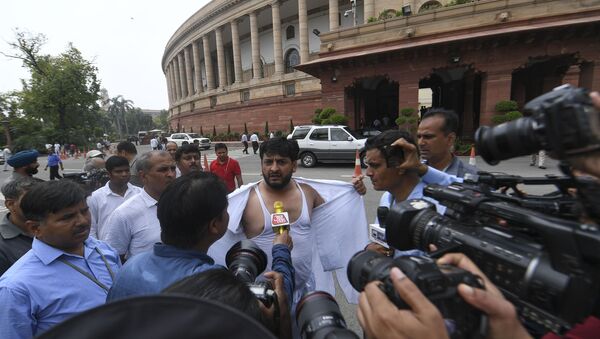Citing cross-border terrorism as a major threat to the country and specifically to Jammu and Kashmir, Indian Home Minister Amit Shah said on 5 August that Indian government's decision to revoke the region's special status will come into effect “at once.”
But M.N. Lahoti, a Supreme Court lawyer, said that he expected a strong legal challenge to be mounted against the order.
“Article 370 is based on certain provisions, certain conditions. The first relates to the Instrument of Accession that the former King of Jammu and Kashmir, Hari Singh, signed on 5 March 1948. The withdrawal of the article has to be done within its parameters,” Lahoti told Sputnik.
“Number two, it is imperative that any move to abrogate the article is put before the State Assembly for discussion and debate. But since there is currently no assembly the writ of the central government prevails.”
“Point number three, the special status granted to the state of Jammu and Kashmir is not a piecemeal arrangement and cannot be seen as one. It was passed by our Constituent Assembly many years ago and it is for our parliament to deliberate on the issue,” Lahoti added.
“This decision will be challenged in the Supreme Court tomorrow (6 August) and I expect a Supreme Court constitutional bench will hear the matter,” he said.
The order will see Jammu and Kashmir state split into two territories, both ruled directly by the central government – Jammu and Kashmir – and Ladakh, a mountainous region in the state. Ladakh will operate without a legislature, while Jammu and Kashmir will have a legislative assembly instead of a constituent assembly. The measure came hours after the government issued security restrictions across the state over fears of terrorist attack.
Article 370 currently allows Jammu and Kashmir to make its own laws and bans people from outside the state from buying property there, getting state government jobs and participating in state-sponsored scholarship programmes.
The views and opinions expressed in this article by are solely those of the M.N. Lahoti are solely those of the speaker and do not necessarily reflect Sputnik's position.



